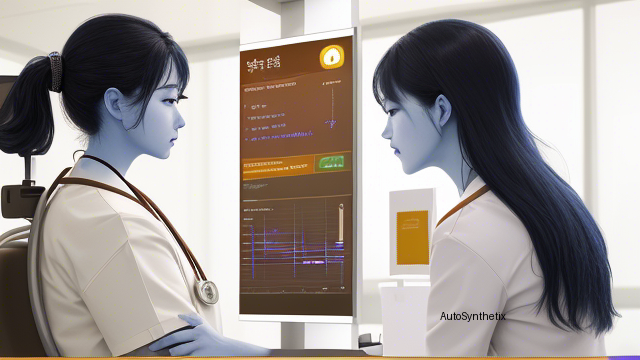Introduction
In today's fast-paced world, modern advancements continue to redefine industries across the globe; one such domain undergoing a radical transformation is the healthcare sector. As per recent developments highlighted in a groundbreaking ArXiv publication, South Korea takes center stage through its innovative application of Artificial Intelligence (AI), particularly within their bustling Emergency Departments (ED). Diving deep into these novel approaches, we explore how the nation's ambitious endeavors may reshape our understanding of efficient emergency response mechanisms.
Embracing the Power of Integration - Enter 'Large Language Models' (LLMs)
Traditionally, Clinical Decision Support Systems (CDSS) have served as indispensable tools in streamlining complex healthcare processes while ensuring optimal quality standards. However, the dawn of Large Language Models (LLMs) heralds a new era where cutting edge technologies like OpenAI's GPT-series find a natural home within the realms of life-saving interventions. In line with this evolutionary shift, researchers from Minerva University in San Francisco delve deeper into harnessing LLMs for more effective triage categorization via the widely adopted Korean Triage and Acuity Scale (KTAS).
A Multifaceted Approach Towards Enhanced Efficiency
To actualize this vision, a multidisciplinary team crafted a sophisticated "multi-agent" framework revolving around Llama-3-70b—a noteworthy LLM variant—as its core foundation. Leaning heavily upon established platforms such as CrewAI and Langchain, this revolutionary design encompasses no less than four artificial intelligence personas mimicking essential ED staff members. These 'agents', namely the Triage Nurse, Emergency Physician, Pharmacist, and Departmental Coordinator, collaborate seamlessly to deliver holistic solutions covering every facet of emergency medical care management.
Performing Beyond Expectations – Evaluating Success Metrics
Upon implementing the proposed architecture, rigorous testing ensued employing the renowned Asclepius dataset. An accomplished clinician specialising in Emergency Medicine meticulously scrutinized the results, offering unparalleled insights into the efficacy levels achieved by the newly devised system. Remarkably, the revamped approach outshone traditional, singular agent configurations. Demonstrating remarkable proficiencies spanning crucial aspects such as accurate triage decisions, precise primary diagnoses, expeditious detection of vital signs, prudent dispositions plans, strategic treatments, and astute resource allocations, this transformative initiative undeniably sets a benchmark for subsequent innovators in the realm of health emergencies.
Conclusion - Pioneering a New Horizon in Crisis Management
South Korea's pioneering efforts in merging advanced LLMs with time-tested KTAS methodology offer a compelling blueprint for global healthcare administrations seeking a competitive advantage amid mounting pressures associated with escalating caseloads. With the success of this bold experiment, one can envisage a near future ripe with intelligent, data-centric aid augmenting human capabilities at the frontlines of crisis resolution. Emphasizing collaboration between humans and machines, this exciting venture ushers in a new age of synergy, ultimately revolutionizing the way hospitals tackle crises head-on.
As we stand on the precipice of unprecedented technological breakthroughs, there remains little doubt that the days ahead will witness further refinement in the interplay between AI and healthcare services, propelling both disciplines towards previously inconceivable heights.
Source arXiv: http://arxiv.org/abs/2408.07531v2
